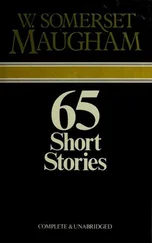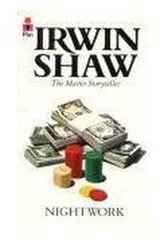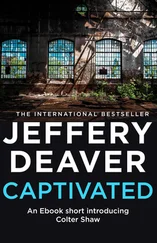Irwin Shaw - Short Stories - Five Decades
Здесь есть возможность читать онлайн «Irwin Shaw - Short Stories - Five Decades» весь текст электронной книги совершенно бесплатно (целиком полную версию без сокращений). В некоторых случаях можно слушать аудио, скачать через торрент в формате fb2 и присутствует краткое содержание. Год выпуска: 2013, Издательство: Open Road Media, Жанр: Современная проза, на английском языке. Описание произведения, (предисловие) а так же отзывы посетителей доступны на портале библиотеки ЛибКат.
- Название:Short Stories: Five Decades
- Автор:
- Издательство:Open Road Media
- Жанр:
- Год:2013
- ISBN:нет данных
- Рейтинг книги:5 / 5. Голосов: 1
-
Избранное:Добавить в избранное
- Отзывы:
-
Ваша оценка:
- 100
- 1
- 2
- 3
- 4
- 5
Short Stories: Five Decades: краткое содержание, описание и аннотация
Предлагаем к чтению аннотацию, описание, краткое содержание или предисловие (зависит от того, что написал сам автор книги «Short Stories: Five Decades»). Если вы не нашли необходимую информацию о книге — напишите в комментариях, мы постараемся отыскать её.
Short Stories: Five Decades — читать онлайн бесплатно полную книгу (весь текст) целиком
Ниже представлен текст книги, разбитый по страницам. Система сохранения места последней прочитанной страницы, позволяет с удобством читать онлайн бесплатно книгу «Short Stories: Five Decades», без необходимости каждый раз заново искать на чём Вы остановились. Поставьте закладку, и сможете в любой момент перейти на страницу, на которой закончили чтение.
Интервал:
Закладка:
Then he’d been offered the job of going from college to college as a tailor’s representative. “We want a man,” Mr. Rosenberg had said, “who as soon as you look at him, you say, ‘There’s a university man.’” Rosenberg had looked approvingly at Darling’s broad shoulders and well-kept waist, at his carefully brushed hair and his honest, wrinkle-less face. “Frankly, Mr. Darling, I am willing to make you a proposition. I have inquired about you, you are favorably known on your old campus, I understand you were in the backfield with Alfred Diederich.”
Darling nodded. “Whatever happened to him?”
“He is walking around in a cast for seven years now. An iron brace. He played professional football and they broke his neck for him.”
Darling smiled. That, at least, had turned out well.
“Our suits are an easy product to sell, Mr. Darling,” Rosenberg said. “We have a handsome, custom-made garment. What has Brooks Brothers got that we haven’t got? A name. No more.”
“I can make fifty, sixty dollars a week,” Darling said to Louise that night. “And expenses. I can save some money and then come back to New York and really get started here.”
“Yes, Baby,” Louise said.
“As it is,” Darling said carefully, “I can make it back here once a month, and holidays and the summer. We can see each other often.”
“Yes, Baby.” He looked at her face, lovelier now at thirty-five than it had ever been before, but fogged over now as it had been for five years with a kind of patient, kindly, remote boredom.
“What do you say?” he asked. “Should I take it?” Deep within him he hoped fiercely, longingly, for her to say, “No, Baby, you stay right here,” but she said, as he knew she’d say, “I think you’d better take it.”
He nodded. He had to get up and stand with his back to her, looking out the window, because there were things plain on his face that she had never seen in the fifteen years she’d known him. “Fifty dollars is a lot of money,” he said. “I never thought I’d ever see fifty dollars again.” He laughed. Louise laughed, too.
Christian Darling sat on the frail green grass of the practice field. The shadow of the stadium had reached out and covered him. In the distance the lights of the university shone a little mistily in the light haze of evening. Fifteen years. Flaherty even now was calling for his wife, buying her a drink, filling whatever bar they were in with that voice of his and that easy laugh. Darling half-closed his eyes, almost saw the boy fifteen years ago reach for the pass, slip the halfback, go skittering lightly down the field, his knees high and fast and graceful, smiling to himself because he knew he was going to get past the safety man. That was the high point, Darling thought, fifteen years ago, on an autumn afternoon, twenty years old and far from death, with the air coming easily into his lungs, and a deep feeling inside him that he could do anything, knock over anybody, outrun whatever had to be outrun. And the shower after and the three glasses of water and the cool night air on his damp head and Louise sitting hatless in the open car with a smile and the first kiss she ever really meant. The high point, an eighty-yard run in the practice, and a girl’s kiss and everything after that a decline. Darling laughed. He had practiced the wrong thing, perhaps. He hadn’t practiced for 1929 and New York City and a girl who would turn into a woman. Somewhere, he thought, there must have been a point where she moved up to me, was even with me for a moment, when I could have held her hand, if I’d known, held tight, gone with her. Well, he’d never known. Here he was on a playing field that was fifteen years away and his wife was in another city having dinner with another and better man, speaking with him a different, new language, a language nobody had ever taught him.
Darling stood up, smiled a little, because if he didn’t smile he knew the tears would come. He looked around him. This was the spot. O’Connor’s pass had come sliding out just to here … the high point. Darling put up his hands, felt all over again the flat slap of the ball. He shook his hips to throw off the halfback, cut back inside the center, picked his knees high as he ran gracefully over two men jumbled on the ground at the line of scrimmage, ran easily, gaining speed, for ten yards, holding the ball lightly in his two hands, swung away from the halfback diving at him, ran, swinging his hips in the almost girlish manner of a back in a broken field, tore into the safety man, his shoes drumming heavily on the turf, stiff-armed, elbow locked, pivoted, raced lightly and exultantly for the goal line.
It was only after he had sped over the goal line and slowed to a trot that he saw the boy and girl sitting together on the turf, looking at him wonderingly.
He stopped short, dropping his arms. “I …” he said, gasping a little, though his condition was fine and the run hadn’t winded him. “I—once I played here.”
The boy and the girl said nothing. Darling laughed embarrassedly, looked hard at them sitting there, close to each other, shrugged, turned and went toward his hotel, the sweat breaking out on his face and running down into his collar.

Borough of Cemeteries
D uring the cocktail hour, in Brownsville, the cab drivers gather in Lammanawitz’s Bar and Grill and drink beer and talk about the world and watch the sun set slowly over the elevated tracks in the direction of Prospect Park.
“Mungo?” they say. “Mungo? He got a fish for a arm. A mackerel. He will pitch Brooklyn right into the first division of the International League.”
“I saw the Mayor today. His Honor, himself. The Little Flower. What this country needs …”
“Pinky, I want that you should trust me for a glass of beer.”
Pinky wiped the wet dull expanse of the bar. “Look, Elias. It is against the law of the State of New York,” he said, nervously, “to sell intoxicating liquors on credit.”
“One glass of beer. Intoxicatin’!” Elias’s lips curled. “Who yuh think I am, Snow White?”
“Do you want me to lose my license?” Pinky asked plaintively.
“I stay up nights worryin’ Pinky might lose his license. My wife hears me cryin’ in my sleep,” Elias said. “One beer, J. P. Morgan.”
Regretfully, Pinky drew the beer, with a big head, and sighed as he marked it down in the book. “The last one,” he said, “positively the last one. As God is my witness.”
“Yeah,” Elias said. “Keep yer mouth closed.” He drank the beer in one gulp, with his eyes shut. “My God,” he said quietly, his eyes still shut, as he put the glass down. “Fer a lousy dime,” he said to the room in general, “yuh get somethin’ like that! Fer a lousy dime! Brooklyn is a wonderful place.”
“Brooklyn stinks,” said another driver, down the bar. “The borough of cemeteries. This is a first class place for graveyards.”
“My friend Palangio,” Elias said. “Il Doochay Palangio. Yuh don’t like Brooklyn, go back to Italy. They give yuh a gun, yuh get shot in the behind in Africa.” The rest of the drivers laughed and Elias grinned at his own wit. “I seen in the movies. Go back t’ Italy, wit’ the fat girls. Who’ll buy me a beer?”
Complete silence fell over the bar, like taps over an army camp.
“My friends,” Elias said bitterly.
“Brooklyn is a wonderful place,” Palangio said.
“All day long,” Elias said, reflectively rubbing his broken nose, “I push a hack. Eleven hours on the street. I now have the sum of three dollars and fifty cents in my pocket.”
Читать дальшеИнтервал:
Закладка:
Похожие книги на «Short Stories: Five Decades»
Представляем Вашему вниманию похожие книги на «Short Stories: Five Decades» списком для выбора. Мы отобрали схожую по названию и смыслу литературу в надежде предоставить читателям больше вариантов отыскать новые, интересные, ещё непрочитанные произведения.
Обсуждение, отзывы о книге «Short Stories: Five Decades» и просто собственные мнения читателей. Оставьте ваши комментарии, напишите, что Вы думаете о произведении, его смысле или главных героях. Укажите что конкретно понравилось, а что нет, и почему Вы так считаете.











